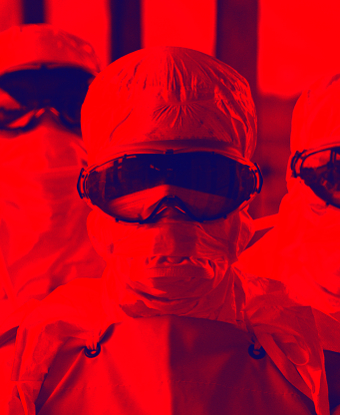Mpox variant causes concern
 The World Health Organization (WHO) has declared an ‘mpox’ global health emergency.
The World Health Organization (WHO) has declared an ‘mpox’ global health emergency.
An outbreak of mpox, a disease formerly known as monkeypox, has been observed in the Democratic Republic of the Congo (DRC) and neighbouring African countries.
The outbreak involves a newly emerging variant of the virus that has now spread to at least 11 countries. Sweden has reported the first case of deadlier mpox variant outside Africa.
Mpox has two main types, or clades: clade I and clade II.
Clade I is typically more severe, with a higher risk of death, while clade II generally causes milder illness.
A subtype of clade I, known as clade 1b, is responsible for the current outbreak in Africa, spreading rapidly through sexual networks.
Clade II was behind the global outbreak in 2022 and 2023, which was less deadly but still significant.
“The emergence of a new clade of mpox, its rapid spread in eastern DRC, and the reporting of cases in several neighbouring countries are very worrying,” said WHO Director-General Dr Tedros Adhanom Ghebreyesus.
The WHO's declaration was informed by an emergency committee of independent experts who reviewed data from affected regions.
Mpox is a viral disease related to smallpox, and it is endemic to parts of Central and West Africa.
It primarily spreads through direct contact with the lesions, bodily fluids, or respiratory droplets of infected individuals or animals.
Symptoms include fever, muscle aches, and a characteristic rash that evolves into fluid-filled lesions.
The current outbreak is driven by a subtype known as clade 1b, which has been spreading rapidly through sexual networks in the DRC and beyond.
Over 15,600 cases and 537 deaths have been reported in the DRC alone this year, surpassing the total number of cases from 2023.
Neighbouring countries like Kenya, Rwanda, Burundi, and Uganda, which had not previously reported mpox cases, have now confirmed over 100 infections of this new strain.
“Mpox, originating in Africa, was neglected there, and later caused a global outbreak in 2022. It is time to act decisively to prevent history from repeating itself,” said Professor Dimie Ogoina, chair of the WHO emergency committee.
The WHO has highlighted the urgent need for international cooperation to contain the outbreak.
WHO Regional Director for Africa, Dr Matshidiso Moeti, has warned that with the growing spread of the virus, current efforts must be scaled up through coordinated global action.
In response to the emergency, the WHO has initiated procedures to accelerate vaccine access, particularly for lower-income countries.
Two vaccines, JYNNEOS and ACAM2000, have been approved for mpox prevention, but supplies are limited in Africa.
The WHO anticipates needing at least US$15 million to support ongoing surveillance, preparedness, and response activities, with US$1.45 million already released from the WHO Contingency Fund for Emergencies.
The outbreak's spread beyond Africa has already begun, with Sweden recently confirming a case of the mpox clade 1b strain.
The European Centre for Disease Prevention and Control (ECDC) has raised its risk alert level in response to the situation, urging countries to remain vigilant.
Experts have underscored the urgency of swift action to prevent the outbreak from escalating into a global pandemic.
Dr Cassandra Berry, a Professor of Immunology at Murdoch University, says people should be concerned about the resilience of the mpox virus and its potential to cause severe illness.
“Mpox belongs to the Poxviridae family and can survive for a long time in dried scabs and on surfaces. It is very resistant in the environment,” she said.
Dr Berry warned that once the virus infects cells, it can spread into the bloodstream, leading to symptoms such as fever, aches, vomiting, and a rash that develops into oozing sores.
“Although mpox is much less dangerous than smallpox, some strains can be fatal,” she added.
Given the increased number of cases and the virus's capacity to survive in harsh conditions, Dr Berry stressed the importance of biosecurity surveillance and robust international monitoring to control the virus's spread.
Australia’s federal health department says it is “monitoring the mpox situation”.








 Print
Print